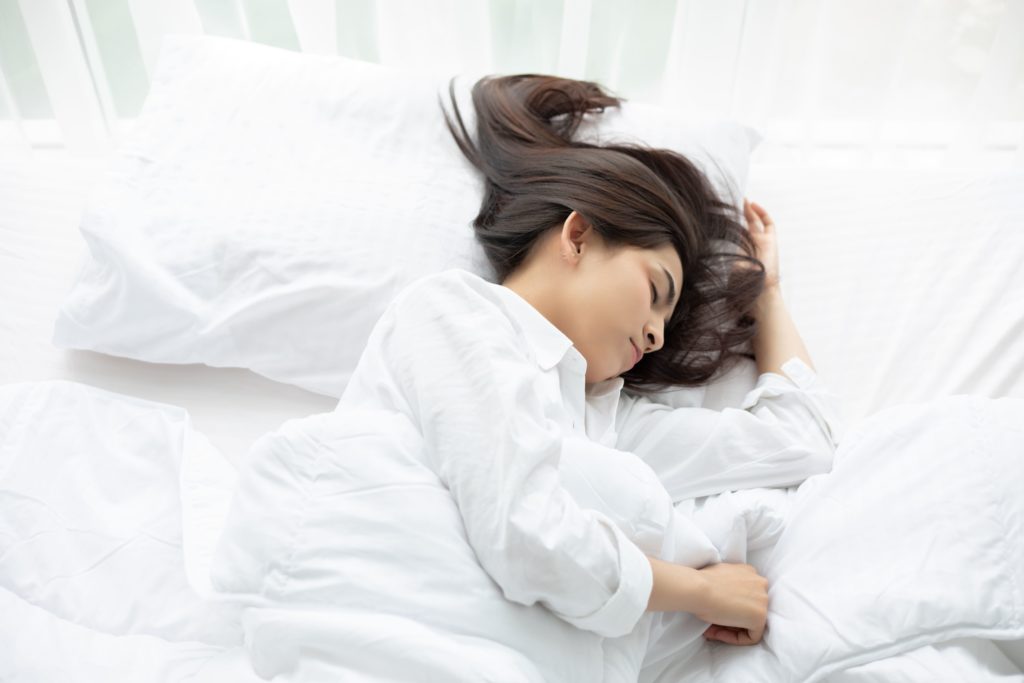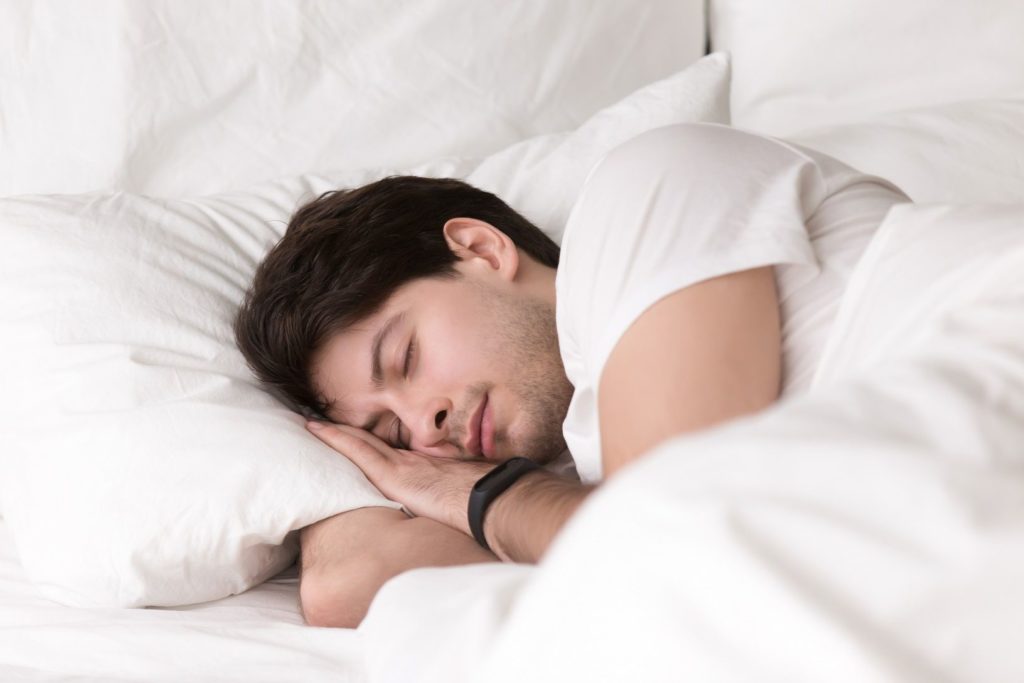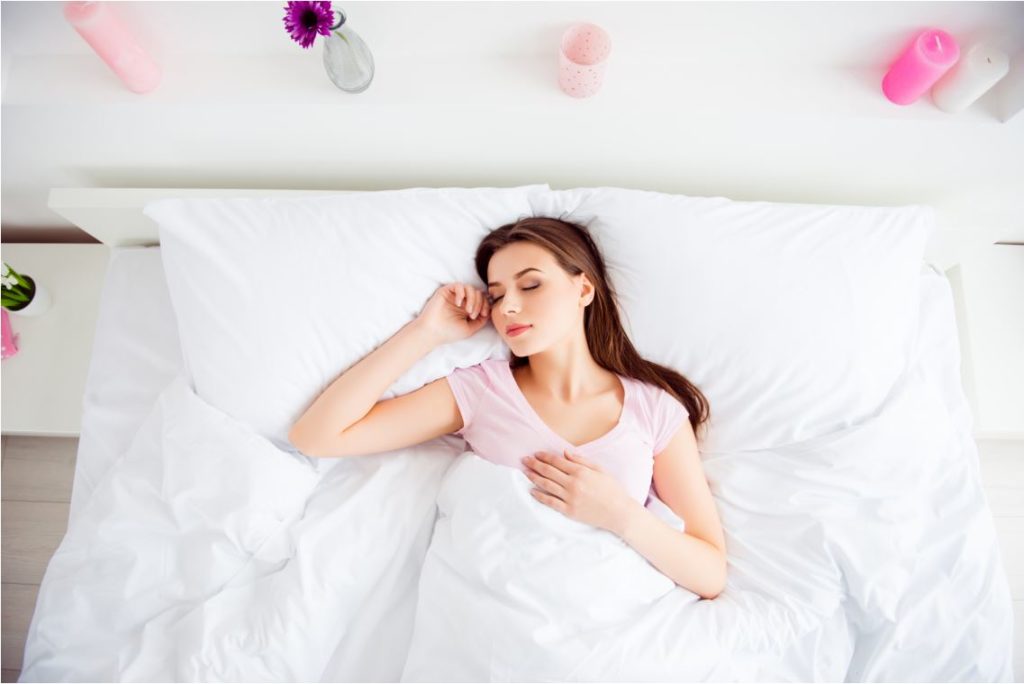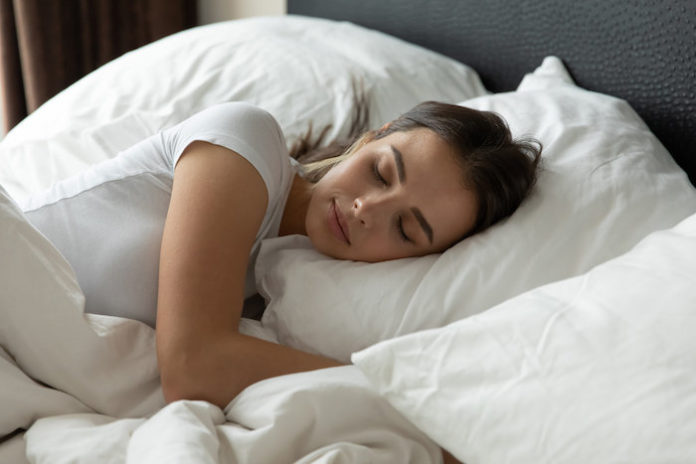People need sleep to survive – just like we need food and water. Sleep is an essential function that allows our bodies to recharge, refresh and be alert for the next day! So, it’s no wonder we spend about one-third of our lives sleeping. Both the length and quality of your sleep are important for good productivity and health.
Experts have recommended that adults get about 7 to 9 hours of sleep per night. Yet so many people struggle to fall and/or stay asleep. The Centers for Disease Control and Prevention estimate that 1/3 of Americans don’t get enough sleep.
If you’re lacking quality sleep, it is detrimental to your overall health. It’s called sleep deprivation. For most people, a short bout of sleep deprivation isn’t a cause for concern. But frequent or prolonged sleep deprivation can cause serious health issues.
Research shows that poor sleep has immediate negative effects on your hormones, exercise performance, and brain function. Lack of sleep can lead to poor cognitive function, increased inflammation, and reduced immune function. If sleep deprivation continues, it may increase your risk for chronic disease.
First, let’s discuss the stages of sleep and how they benefit your brain health.

The Stages of Sleep
Your sleep cycle can be broken into two main types of sleep: rapid eye movement (REM) and nonrapid eye movement (NREM) stages. Non-REM sleep consists of multiple stages, while REM sleep is just a single stage.
Stage 1: NREM (N1)
This stage of sleep is the transition from being awake to being asleep. This is a light, NREM that doesn’t last very long. This stage: is characterized by a slowed heartbeat, breathing slowing down, muscles beginning to relax, and may twitch, however, your body isn’t fully relaxed yet. This typically lasts from five to 10 minutes once you are asleep.
Stage 2: NREM (N2)
This second stage of sleep is still light sleep, but you are in a more subdued state. Your breathing and heartbeat slow down further, no eye movements, your brain waves spike up and down: producing “sleep spindles”, body temperature drops, and your muscles relax.
This stage of sleep can last for 10 to 25 minutes during the first sleep cycle. This generally comprises the largest percentage of total sleep time in middle-aged adults, typically 45 to 55 percent of the night.
Stage 3: Slow-Wave Sleep (SWS)
This is frequently referred to as “deep sleep” or “slow-wave sleep.” This is the most important stage of sleep to feel refreshed in the morning.
During these stages:
- heartbeat and breathing are at their slowest rate
- delta brain waves are present
- the immune system strengthens and supports brain health
- the body is fully relaxed
- arousal from sleep is difficult
- no eye movements
- tissue repair and growth, and cell regeneration occurs
- blood flow to your muscles increases
In this stage of sleep, your brain releases cerebrospinal fluid (CSF). Studies have shown this fluid helps clean your brain and helps with memory consolidation, where new memories are transferred into long-term storage.
During the early sleep cycles, SWS sleep lasts for 20 to 40 minutes. This typically accounts for 10 to 20 percent of the total sleep time in young to middle-aged adults and decreases with age. It tends to occur more in the first half of the night, particularly at the beginning of the night, and it’s often more difficult to arouse sleepers, compared with stages N1 and N2.
Stage 4: Rapid-Eye Movement (REM)
The rapid eye movement or REM stage occurs about 90 minutes after you fall asleep and recurs every 90 minutes. This stage is where most dreaming occurs, although you can dream at any stage of sleep.
During this stage:
• Breathing and heart rate increases
• Eye movements become rapid
• Brain activity is markedly increased
• limb muscles become temporarily paralyzed, but twitches may occur
This stage is the most critical to your brain’s health. REM sleep plays an important role in memory consolidation as it supports brain health by improving memory, learning, and creativity.
REM sleep lasts roughly 10 minutes the first time, increasing with each REM cycle. The final cycle of REM sleep usually lasts for roughly 60 minutes.
The four stages of sleep work together to allow your brain and body to recover and develop.

How Much Sleep Do You Need for Brain Health
No matter who you are, sleep is essential for your health. The amount of sleep you need for brain health depends greatly on your age.
Official recommendations for sleep duration are broken down by age group:
Older adults (65+): 7–8 hours
Adults (18–64 years): 7–9 hours
Teenagers (14–17 years): 8–10 hours
School children (6–13 years): 9–11 hours
Preschoolers (3–5 years): 10–13 hours (including naps)
Toddlers (1–2 years): 11–14 hours (including naps)
Infants (4–12 months): 12–15 hours (including naps)
Newborns (0–3 months): 14–17 hours
What happens if you don’t get enough sleep?
If you wake up feeling exhausted, your body has a hard time functioning properly and this is a sign that you’re not getting enough sleep.
When you don’t get enough sleep, you may increase your risk of having chronic health problems affecting the heart, kidneys, blood, brain, and mental health.
Lack of sleep can increase the risk of falls and broken bones for both adults and children. Also, drivers’ drowsiness can cause serious car accidents and even death.
Benefits of Sleep for Brain Health
What does Sleep do for your body? When you’re asleep, your body replenishes and repairs itself, both mentally and physically. Our bodies take time to:
• Repair muscle tissue
• Grow bones
• Manage hormones
• Consolidate memories
Moreover, there are benefits you can get from having good-quality sleep for brain health.
Supports Your Mental Health
A restful night is not always easy to achieve. One in three Americans doesn’t get enough sleep.
Getting higher quality sleep was significantly less likely to experience depressive symptoms. The research found that sleep quality “significantly outranked” sleep quantity in predicting a person’s mental health and overall well-being. The quality of your sleep is influenced by a wide array of factors including your hormones and neurotransmitters.
Does this mean that people can go ahead with a few extra hours of sleep as they ensure the high-quality sleep they get? Not so fast. Sleeping for fewer than eight hours or more than twelve hours on average per night was associated with a greater likelihood of depressive symptoms and low well-being.
Quality and quantity matter when it comes to sleep – just don’t think that hours on the clock are all that matter when it comes to getting sufficient rest.
Improved Concentration and Increased Productivity
Sleep is important for various aspects of brain function. People who get adequate sleep are more productive and experience better performance, memory, and concentration than chronically sleep-deprived people.
Studies found that short sleep can negatively impact some aspects of brain function to a similar degree as alcohol intoxication. On the other hand, good sleep has been shown to improve problem-solving skills and enhance the memory performance of both children and adults.
Improves Memory
Lack of proper sleep has been associated with poor memory for quite some time. Sleep plays an important role in memory consolidation.
Experts recommend that the average adult needs 7 – 9 hours of sleep for optimal brain function including focus, memory, creativity, and critical thinking.
Aside from the mentioned above, there are other benefits as well. It can:
• Boosts your metabolism
• Supports your immune system
• Makes your heart stronger
• Builds protein molecules
• Reduces inflammation
• Puts you in a better mood

Tips To Get Quality Sleep
Practicing good sleep hygiene is the best way to get quality sleep at night. Here are some ways you can improve your sleep hygiene:
Spend time outside in the sun during the day. Your body has a natural time-keeping clock known as your circadian rhythm. Exposing your body to natural light during the day can help maintain a healthy circadian rhythm. A study in older adults found that 2 hours of bright light exposure during the day increased the amount of sleep by 2 hours and sleep efficiency by 80%.
Exercise or move your body throughout the day. Getting at least one exercise or movement session in each day is a great way to improve your health and sleep quality. It can enhance all aspects of sleep and has been used to reduce symptoms of insomnia. About 20 to 30 minutes each day is a good start, just avoid working out in the hours before bedtime.
Limit your nap time to no more than 30 minutes. While short power naps are beneficial, if you nap for longer than 30 minutes, it can leave you wide awake when it’s finally time for bed. Sleeping in the daytime can confuse your internal clock, meaning that you may struggle to sleep at night.
However, some studies demonstrate that those who are used to taking regular daytime naps don’t experience poor sleep quality at night. The effects of napping depend on the individual.
Avoid stimulants and certain foods before bed. Caffeine has numerous benefits and is consumed by 90% of the U.S. population. Caffeine, nicotine, or alcohol before bed can interrupt your sleep, as can foods that cause indigestion or stomach upset.
It is better to stick to water and other decaffeinated drinks before bed.
Also, the best way to get enough sleep is to follow 3 simple steps for optimal sleep.
Eat these – foods rich in tryptophan, magnesium, and melatonin. Turkey, chicken, and shellfish are great sources of tryptophan, while bananas, avocados, and green leafy vegetables contain a lot of magnesium. Your body naturally produces melatonin, however, you can also get it from pork, salmon, and cherries.
Skip these – Fatty foods, rich proteins, chocolate, alcohol and coffee, and over-the-counter medications that could contain hidden caffeine and sugar. Check your labels!
Get tired naturally – Having a regular sleep schedule, waking up early and going to bed early, exercising, and creating a bedtime routine are great ways to promote optimal sleep.
Getting enough sleep in the deep sleep stages is essential for brain health. Remember, the longer you are asleep plays a role in how much deep sleep you get. If you’ve been having a hard time getting quality sleep, you’re not alone. The empowering part is that you can use these tools to get restful, restorative sleep for your brain health.



